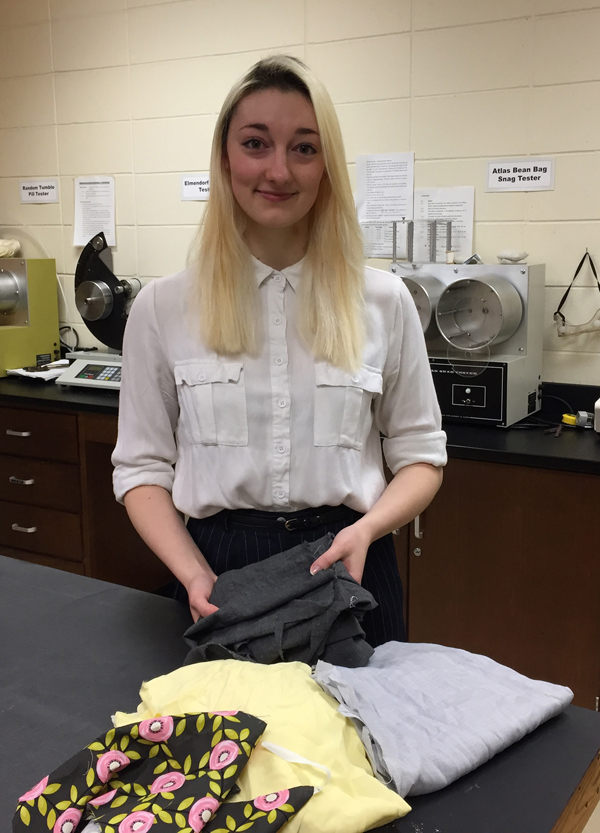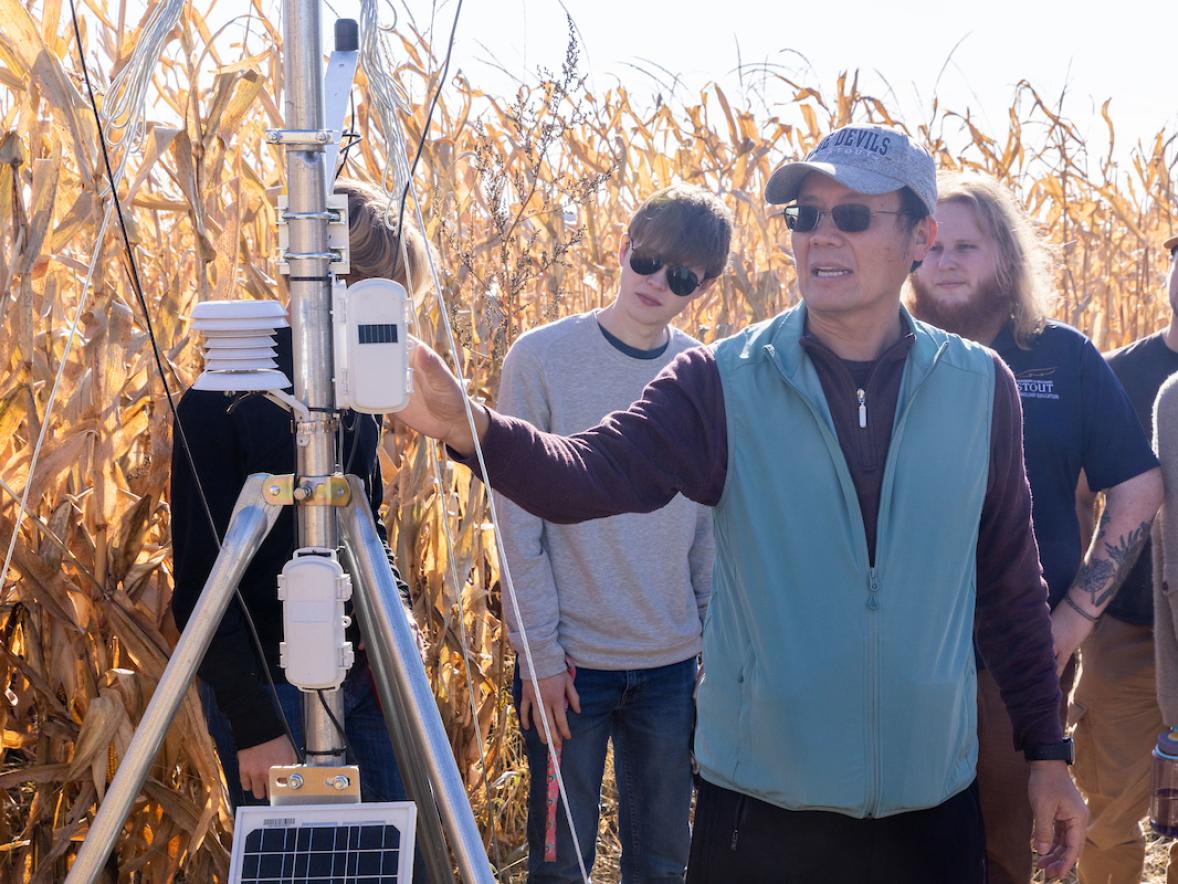Research by a UW-Stout student indicates that hemp may be the sustainable fabric of our lives.
Cambria Sinclair, 20, an apparel design and development major from De Pere, researched four fabrics and a bacterial fabric to determine which was durable yet easy to grow.
She will present her research as part of Research in the Rotunda at the state Capitol in Madison on Wednesday, April 11. She is one six UW-Stout students who will have their research featured along with that of peers from around the UW System.
Sinclair’s research, “Green Fabrics: An Analysis of Top Sustainable Fabrics,” tested tencel, bamboo, organic cotton, hemp and a bacterial fabric she grew and dried like leather in an apparel lab in Heritage Hall. She tested the fabrics for such things as durability and colorfastness.
“Hemp is overall the best one,” Sinclair said, noting that it grows in just a few months and has more fibers per plant. “It can be very comfortable to wear. It’s a really good crop. You don’t have to use the pesticides because it suppresses weeds. It is biodegradable, and fabric can be composted.”
 There are different varieties of the hemp plant, and those used in clothing have virtually none of the effects of hemp plants used for marijuana, Sinclair said.
There are different varieties of the hemp plant, and those used in clothing have virtually none of the effects of hemp plants used for marijuana, Sinclair said.
The bacterial fabric she tested was not very durable and can spoil, Sinclair said.
Sinclair chose the research project because one of her minors is in sustainability. “The fashion industry is one of the largest polluters in the world,” she said, adding that she wants to help prove fashion can be environmentally conscious.
Other UW-Stout students participating in Research in the Rotunda include:
- Richard Shipman, of Spooner, “Effects of Metal Binding Proteins on the Surface of a Model of Tooth Decay.”
- Alexandra Ciak, of New Richmond, environmental science, “Effects of Zinc Application on Cadmium Absorption in Kale and Snow Peas.” Co-authors are Brent Deaver, Christina Hang, Lillie Kus, Lilia Theisen and MaiHer Xiong.
- Bailey Kramer, of Elk Mound, applied math and computer science, “Effects of Varying Volumes of Recycled Stream Sediment on the Nutrient Content of Avena sativa.”
- Alexander Beyer, of Hudson, applied social science, “Public Land Usage: Development of Social and Economic Relations.”
- Rebecca Doan, of Abrams, applied social science, “The Pretrial Criminal Process: Structural Violence Within Alabama’s Bail Bond Industry.”
Research in the Rotunda, in its 15th year, showcases the work of undergraduate students in the UW System. State legislators and officials are among the attendees.
“We are proud to sponsor this opportunity for students and faculty to present their research achievements to the general public and the state Legislature,” stated UW System President Ray Cross in the event program. “The research projects embody the personal and intellectual growth the students who created them have experienced. They are a tangible representation of our ongoing commitment to expanding knowledge beyond our campuses and represent the kind of ideas that instrumental to future success.
“We congratulate the talented students whose work represents the unique and critical role research plays throughout the UW System and beyond,” Cross added. “Their effort to extend knowledge beyond the boundaries of the campus and to stimulate society through their research exemplifies the Wisconsin Idea and makes us all very proud of our university system and our state.”
###
Photo
Cambria Sinclair holds fabric made of hemp, which ranked the best for sustainability among four fabrics she tested.





